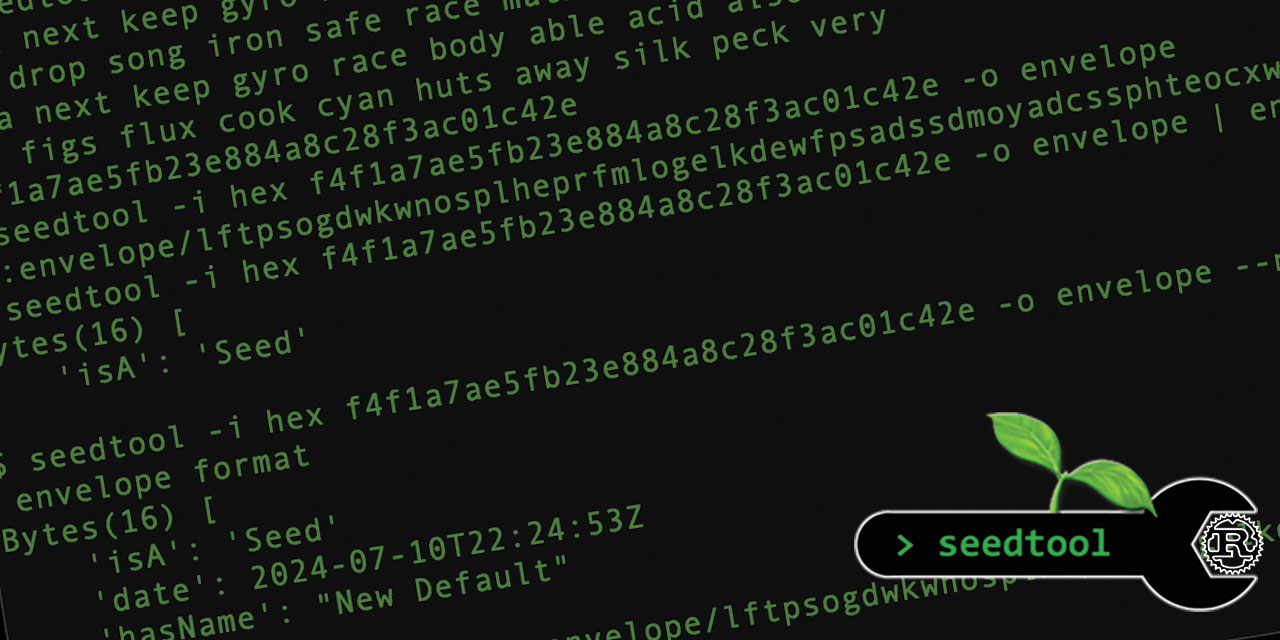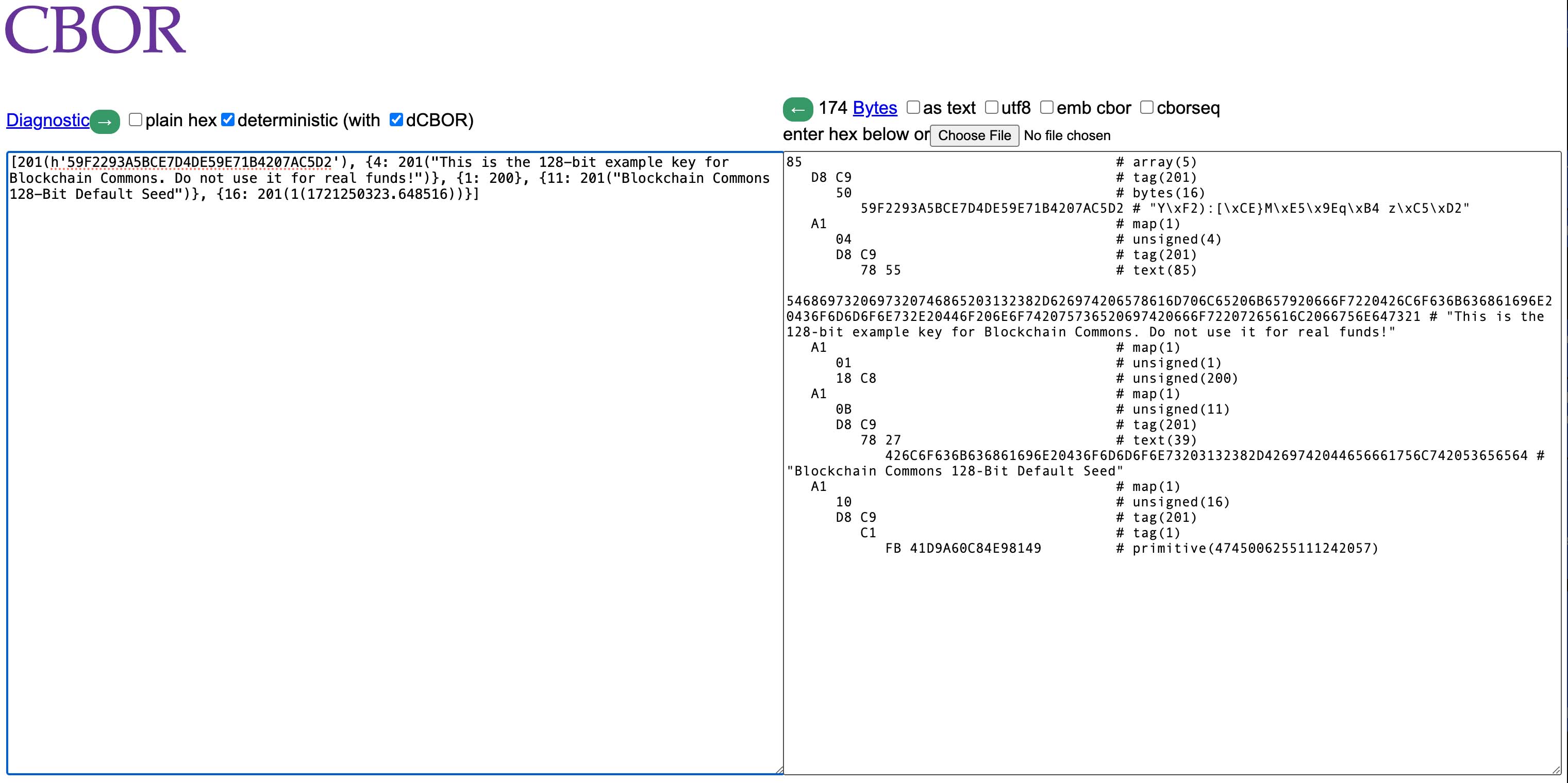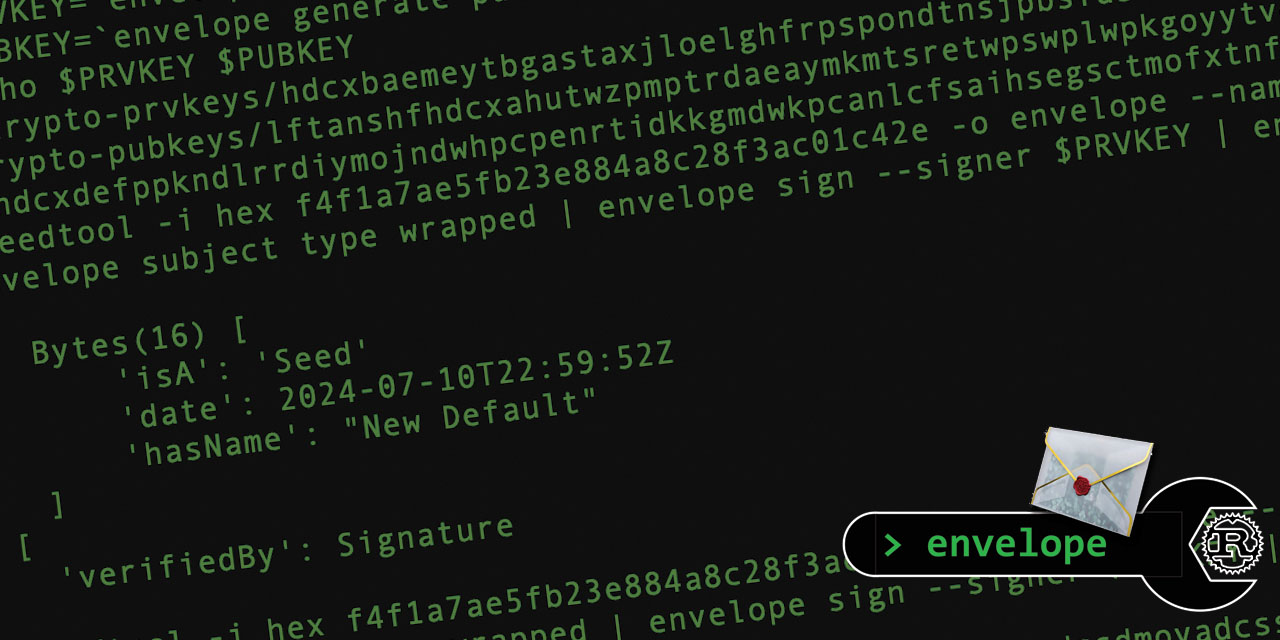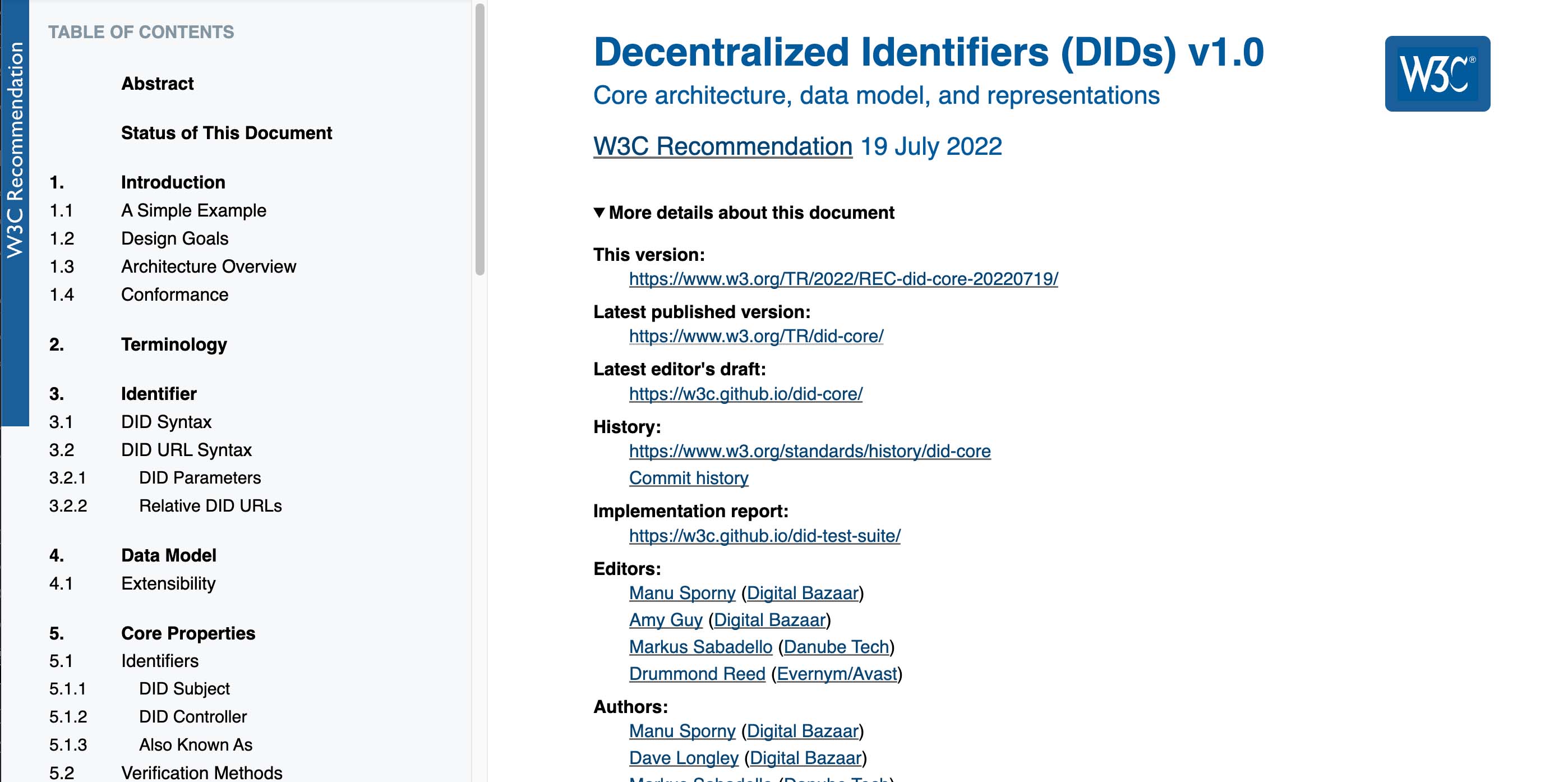2024 Q2 Blockchain Commons Report
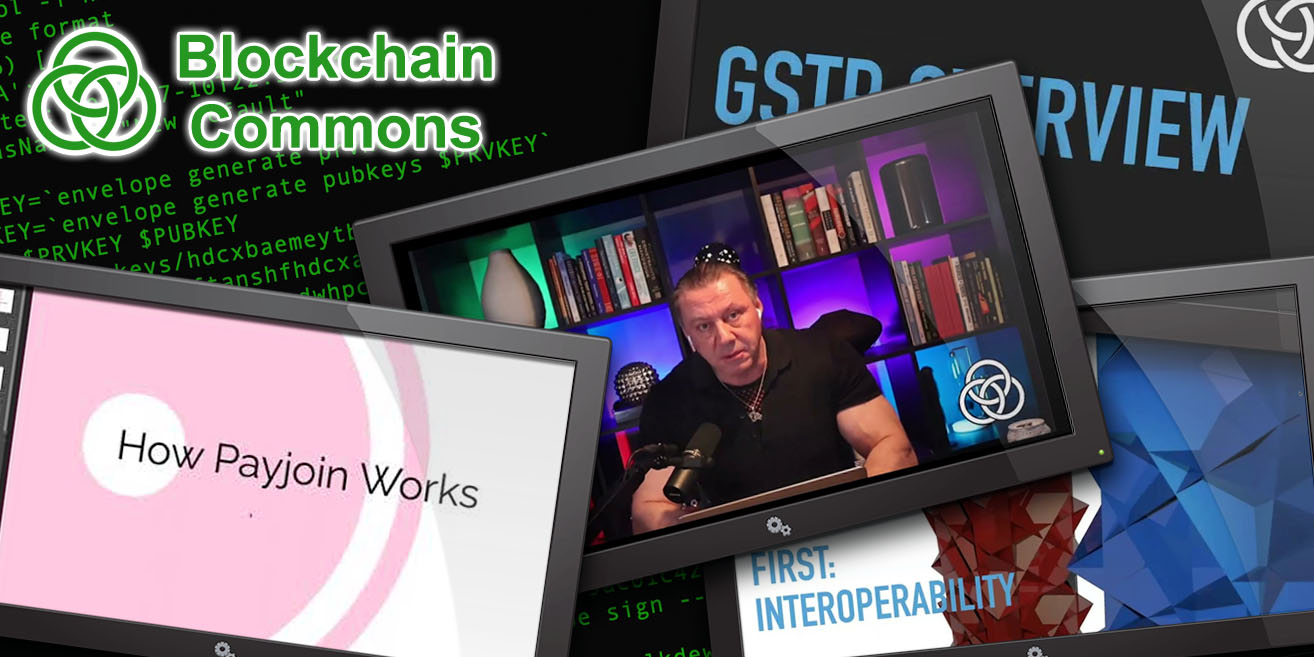
Blockchain Commons is a not-for-profit organization that advocates for the creation of open, interoperable, secure, and compassionate digital infrastructure. Our goal is to enable people to control their own digital destiny and to maintain their human dignity online. We do this through the creation of interoperable specifications and reference software that demonstrate how to create and manage digital assets in ways that are private, independent, resilient, and open.
In Q2 of 2024, we advanced these principles through the following work:
- Gordian Envelope Updates
- Expanded Developer Pages
- Request/Response Presentation
- Graph Representation
- Gordian Meetings
- FROST Presentation
- PayJoin Presentation
- All the Rest
- Seedtool-Rust Release
- seedtool-cli-rust
- Seedtool Manual
- dCBOR Adoption
- cbor.me
- cbor2
- QCBOR
- IANA assignment of Tag 201
- GSTP Improvements
- SSH Research
- ssh-envelope Experiment in Python
- SSH Key Support for envelope-cli
- More to Come
- Architectural Articles
- Minimum Viable Architecture
- Authentication Patterns
- DID Futures
- W3C DID 1.1 WG
- RWOT 13
- Grants/Funding
- What’s Next?
Gordian Envelope Updates
Gordian Envelope, Blockchain Commons’ “Smart Document” system, continues to be a major focus. Here’s what that meant in Q2.
Expanded Developer Pages. The developer pages were updated with a new executive summary and feature list to clarify the capabilities and advantages of using Envelope. (More executive summaries of our technology to follow!)
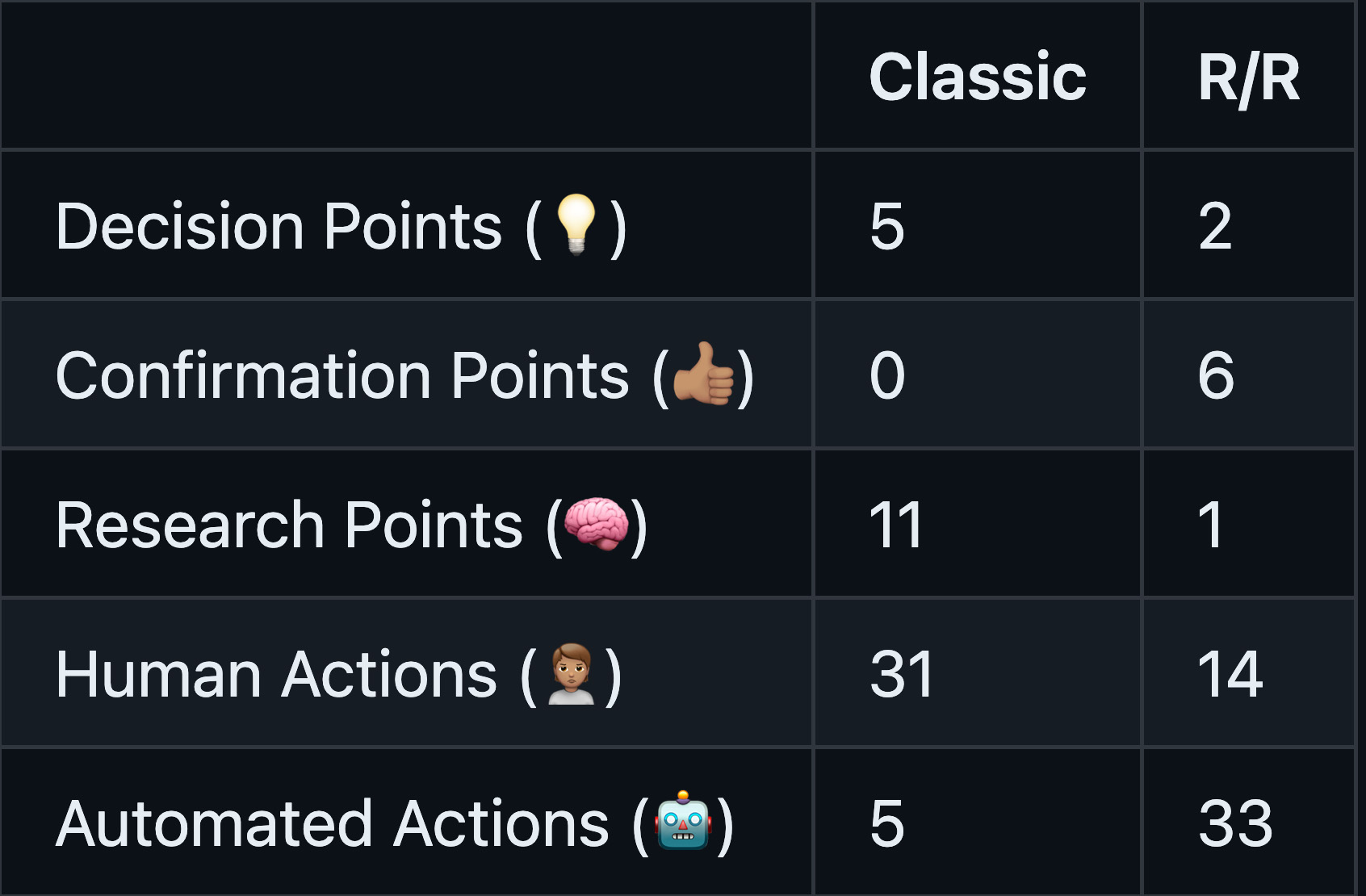
Request/Response Presentation. Our May Gordian Developers Meeting included a presentation on Request/Response, which is an interoperable communication methodology using Gordian Envelope. Why use it? It can make complex digital-asset procedures more accessible by using automation to dramatically reduce the amount of human interaction needed, yet it also preserves security by ensuring that human choices are required whenever data is transmitted from one device to another. (But watch the presentation for more!)
Graphs Representation. Blockchain Commons has a new research paper out on Representing Graphs with Envelope, which presents a proposed architecture for representing many types of graphs, enabling the use of Envelope for a variety of graph-based structures and algorithms.
Gordian Meetings
Gordian Developer Meetings are how we bring the wallet community together to talk about our interoperable specifications. We’ve been thrilled to expand that in the last quarter with some feature presentations from experts in the field.
FROST Presentation. April saw a special presentation on FROST by Jesse Posner that not only talked about his work to date, but also some of the emerging capabilities of FROST, such as the ability to regenerate shares or even change thresholds without changing the underlying secret! We’ve long thought FROST was a great next-generation resilience solution for digital assets, and so appreciate Jesse talking to our community about why it’s so exciting. See the complete video of our April meeting for more.
PayJoin Presentation. Privacy is one of our fundamental principles for Gordian design. It’s also a principle that will be better supported in Bitcoin with a new version of PayJoin. Dan Gould was kind enough to give a full presentation on the updates he’s working on at our May meeting. We’ve got a video of just his PayJoin presentation.
All the Rest. Both meetings of course also included details on Blockchain Commons’ own work (much of which is detailed in this report). The Gordian Developer meetings continue on the first Wednesday of every month. We’ve also already scheduled a few feature presentations for the rest of the year. On August 7th, we’ll have a special presentation on BIP-85, then on December 4th, we’ll have another FROST presentation for wallet developers. If you’d like to make a special presentation in September, October, or November on a topic of interest to wallet developers, let us know!
Also, if you’re a cryptographer, spec designer, or library developer who is working to implement FROST, please be sure to sign up for our FROST implementers announcements-only list so that you can receive invites for our second FROST Implementers Round Table, which will be on September 18 thanks to support from the Human Rights Foundation (HRF).
Seedtool-Rust Release
Blockchain Commons’ newest reference application is seedtool-cli for Rust.
seedtool-cli-rust. Seedtool is a domain-specific application that allows the creation, reconstruction, translation, and backup of cryptographic seeds. Blockchain Commons’ new Rust-based Seedtool replaces our older C++-based CLI and provides broader support for Gordian Envelope, including offering Gordian Envelopes of SSKR shares, that can backup a seed using Shamir’s Secret Sharing. Seedtool’s Gordian Envelopes can then be piped into envelope-cli-rust for compression, encryption, or the addition of further metadata.
Seedtool Manual. For more on seedtool-cli-rust, check out the full user manual, which explains how to use all of its functionality and why it’s important.
dCBOR Adoption
dCBOR is one of the foundations of Envelope, as it allows for the deterministic ordering of data, which is crucial for a hashed data system like Envelope. The IETF dCBOR Internet-Draft updated from v8 to v10 over Q2, with most of those changes due to expanding support for the spec. We’re still hoping to see the Internet-Draft finalized soon!
cbor.me. The CBOR Playground is Carsten Bormann’s foundational diagnostic site for CBOR. It now supports dCBOR thanks to a new Ruby Gem that Carsten authored.
cbor2. Joe Hildebrand’s cbor2 library for Typescript has also been expanded to support dCBOR.
QCBOR. Laurence Lundblade’s QCBOR library (which is written in C) now supports dCBOR in its development branch.
IANA Assignment of Tag 201. Finally, 201 is now officially the “enclosed dCBOR” tag for CBOR. This is also critical for Gordian Envelope, which uses this tag to wrap dCBOR in each of an envelope’s “leaf” nodes.
GSTP Improvements
Gordian Sealed Transaction Protocol (GSTP) is a Gordian Envelope extension. It allows for Envelope Requests and Responses to be sent in a secure way and is a critical element of Blockchain Commons’ Collaborative Seed Recovery system, which enables the storage of SSKR shares in a Gordian Depository.
GSTP Advances. Thanks to support from our Research Sponsor, Foundation Devices, Blockchain Commons was able to expend considerable engineering work on GSTP in the last quarter, resulting in more fluent API patterns for building GSTP requests and responses. In addition, GSTP now supports bidirectional self-encrypted state with a unique and powerful new feature that we are calling Encrypted State Continuations (ESC). Overall, GSTP is a system that is secure, distributed, and transportation-agnostic. In a world where we could be sending digital-asset info by NFC, Bluetooth, or QR codes, it’s a critical security measure. See our presentation from the most recent Gordian Developers Meeting for more!
SSH Research
SSH has been long used as an authentication system, primarily for accessing UNIX computers. However, it’s recently come under increasing usage as a signing system as well, primarily thanks to extensions in Git. That has led to Blockchain Commons experimenting with the integration of SSH keys into Envelope. (This has also demonstrateð the flexibility of Envelope through the addition of these signing methodologies.) We’ve now got some first results.
ssh-envelope Experiment in Python. Early in the quarter, we produced ssh-envelope, an experimental Python program that worked with both ssh-keygen and envelope-cli. But, thanks to some very rapid development, we’ve already moved beyond that.
SSH Key Support for envelope-cli. We’ve since integrated SSH key support throughout our Rust stack, primarily affecting our bc-components and bc-envelope Rust crates. This allowed us to bring our SSH key support fully into the Rust envelope-cli, which you can now use for SSH signing.
More to Come. We’re still working on processes that will allow for the safe, secure, and reliable signing of software releases, something that we talked about extensively in our software use cases. You can see some more of our work-in-progress in a discussion of SSH Key Best Practices. We hope to have more on using SSH to enable resilient & secure software releases later in the year.
Architectural Articles
Blockchain Commons expresses a lot of its more architectural thoughts as articles. There were two major articles in Q2.
Minimum Viable Architecture. Our first major article for the quarter focused on the methodology of Minimum Viable Architecture (MVA). Many companies still focus on Minimum Viable Products. Our article advocates instead looking at the big picture (with lots of discussion on why that’s important).
Authentication Patterns. Design patterns are a crucial element in architectural design. Much as with the adversaries found in #SmartCustody, design patterns allow you to put together a larger system piece by piece. As part of a guide to the strength of heterogeneity in architectural design, Blockchain Commons penned a set of authentication design patterns. We’d like to do more to fill out the space, but for now feel like this is a good first cut that shows the value of the design style.
DID Futures
The Blockchain Commons principals have been involved with DIDs since Christopher Allen founded Rebooting Web of Trust in 2015.
W3C DID 1.1 WG. After a hiatus, the W3C DID working group has been rechartered through 2026. Christopher Allen continues as an Invited Expert, focused on a variety of privacy issues, including elision, DID registration, and DID resolver issues.
RWOT 13. Meanwhile, Rebooting the Web of Trust continues to be on the frontline for DID advancements, with Christopher still the chair of the organization and Shannon Appelcline the editor-in-chief. RWOT13 is finally back in the USA, with the early bird deadline for advance-reading papers at the start of August.
Grants/Funding
As we’ve written elsewhere, funding has become more difficult in the last year because of large-scale financial factors such as inflation and the resultant increase in interest rates. Blockchain Commons has responded by working more closely with some of our partners on topics of special interest to them and by seeking out grants.
Thanks to Human Rights Foundation for their grant enabling our continued support of FROST work.
Thanks to Foundation Devices for their support of GSTP work.
Thanks to Digital Contract Design for their support of our advocacy over the last year.
Please consider becoming a personal or corporate sponsor of Blockchain Commons so that our work can continue. Or, if you want support to integrate or expand one of Blockchain Commons’ existing projects (such as SSKR, Envelope, or the Gordian Depositories) in an open manner, to meet your company’s needs, contact us directly about becoming a Research Sponsor.
Also, please let us know of any grants or awards that you think would be closely aligned with our work at Blockchain Commons, so that we can apply.
What’s Next?
Coming up:
- More work on Envelope & GSTP.
- More reveals of our SSH work.
- A new musings on cryptographic “cliques”.
We’re looking forward to Q3!
